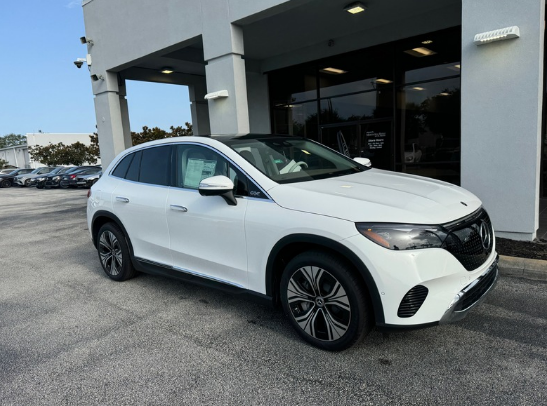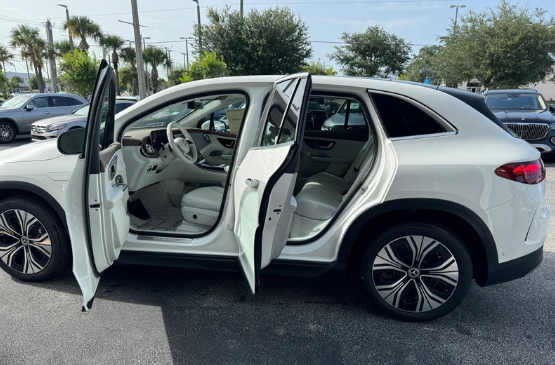As the automotive industry evolves, many are considering the transition to electric vehicles. Understanding the different options—all-electric vehicles (EVs), hybrids, and plug-in hybrids—can help you make an informed decision. Here are the top 10 reasons to choose electric and how each vehicle type fits into these benefits.
Reasons to Choose Electric Vehicles – EVs, Hybrids and Plug-in Hybrids
1. Environmental Impact
All-Electric Vehicles (EVs): One of the most compelling reasons to choose electric is the positive environmental impact. EVs produce zero tailpipe emissions, significantly reducing your carbon footprint and contributing to cleaner air.
Hybrids: While hybrids still use gasoline, they are more eco-friendly than conventional vehicles. They offer improved fuel efficiency and reduced emissions compared to traditional ICE vehicles.
Plug-In Hybrids (PHEVs): PHEVs offer a hybrid solution with the added benefit of electric-only driving for shorter trips. This reduces overall emissions and reliance on fossil fuels, making them an excellent choice for environmentally conscious drivers.
2. Fuel Savings is a Reason to Choose Electric
EVs: One of the top reasons to choose electric is the cost savings on fuel. Charging an EV is often cheaper than buying gasoline, especially if you charge at home during off-peak hours. Over time, these savings can add up significantly.
Hybrids: Hybrids improve fuel economy by combining electric power with gasoline, leading to fewer trips to the pump. This results in lower fuel costs and savings over the vehicle’s lifespan.
PHEVs: With the ability to use electric power for daily commutes and gasoline for longer trips, PHEVs offer significant fuel savings. The more you use the electric mode, the more you save on fuel costs.
3. Maintenance Costs
EVs: Another major reason to choose electric is the lower maintenance costs. EVs have fewer moving parts compared to traditional vehicles, resulting in fewer maintenance needs. There’s no need for oil changes, and regenerative braking often extends brake life.
Hybrids: Hybrids have both an ICE and electric components, so maintenance costs are generally higher than EVs but lower than conventional cars. The electric motor can reduce the load on the engine, potentially leading to lower overall maintenance costs.
PHEVs: PHEVs fall in between EVs and hybrids regarding maintenance. The presence of both electric and ICE components means more maintenance compared to an EV but potentially lower costs compared to traditional vehicles.
4. Driving Experience
EVs: For those considering the reasons to choose electric, the driving experience is a significant factor. EVs offer a quiet, smooth ride with instant torque for quick acceleration. Many modern EVs come with advanced technology that enhances the driving experience.
Hybrids: Hybrids provide a balanced driving experience, combining electric and gasoline power. They offer smooth acceleration and regenerative braking, though not as instant as in EVs.
PHEVs: PHEVs offer the best of both worlds: the smooth, quiet ride of an EV for short trips and the flexibility of gasoline for longer journeys. This makes them a versatile option for various driving needs.
5. Range and Charging Infrastructure
EVs: One common concern about EVs is range. However, with advancements in battery technology, many EVs now offer sufficient range for daily commutes and even longer trips. The growing charging infrastructure also supports longer journeys.
Hybrids: Range anxiety is not a concern with hybrids since they rely on gasoline and do not require charging. They are suitable for those who frequently drive long distances.
PHEVs: PHEVs alleviate range anxiety by offering electric-only driving for short trips and gasoline for longer journeys. This flexibility makes them an excellent choice for drivers who want the benefits of electric power without compromising range.
6. Incentives and Rebates
My car lease is coming up and it was time to start looking for a new lease. I couldn’t believe the incentives and rebates that were being offered on the all-electric cars. Best of all the all-electric models were aesthetically beautifully designed. I was able to find the sporty and luxurious look I wanted. Check out the Mercedes EQUE 350X4.



EVs: One of the financial reasons to choose electric is the availability of incentives and rebates. Many governments offer tax credits and incentives for purchasing EVs, reducing the upfront cost and making them more affordable.
Hybrids: Some incentives are available for hybrids, but they are generally less generous than those for EVs. They still offer financial benefits compared to traditional vehicles.
PHEVs: PHEVs often qualify for various incentives and rebates, making them an attractive option for those looking to save money on their purchase while reducing their environmental impact.
7. Resale Value
EVs: As demand for electric vehicles grows, so does their resale value. Investing in an EV can be a smart financial decision as the market for used EVs expands.
Hybrids: Hybrids generally maintain good resale value due to their fuel efficiency and environmental benefits. They are seen as a solid investment for eco-conscious drivers.
PHEVs: PHEVs also retain good resale value, especially as more buyers look for flexible and eco-friendly options. Their versatility adds to their appeal in the used car market.
8. Charging Convenience
EVs: Charging at home is a significant convenience factor for many EV owners. Overnight charging ensures your vehicle is ready for the next day, though public charging stations are becoming more widespread.
Hybrids: Hybrids don’t require charging, which eliminates the need to find charging stations. This convenience is ideal for those without access to home charging.
PHEVs: PHEVs offer the convenience of home charging and the flexibility of using gasoline. This combination makes them suitable for a wide range of driving scenarios.
9. Technological Advancements
EVs: One of the key reasons to choose electric is the advanced technology often found in EVs. Features like over-the-air updates, advanced driver-assistance systems, and state-of-the-art infotainment systems are common in modern EVs.
Hybrids: Hybrids also feature modern technology, though they may not be as advanced as EVs. They offer a range of tech features that enhance the driving experience.
PHEVs: PHEVs include technology from both EVs and hybrids, providing a comprehensive tech package that appeals to tech-savvy drivers.
10. Future-Proofing
EVs: Investing in an EV is a forward-looking decision. As emissions regulations become stricter and renewable energy sources become more prevalent, EVs position you ahead of the curve.
Hybrids: Hybrids represent a step towards sustainability but may face limitations as regulations tighten. They are a transitional choice for those not ready to go fully electric.
PHEVs: PHEVs offer a transitional solution, combining current convenience with future sustainability. They are an excellent option for those looking to bridge the gap between traditional and fully electric vehicles.
Understanding the reasons to choose electric can help you decide between all-electric, hybrid, and plug-in hybrid vehicles. Each option offers unique benefits and considerations. Whether you prioritize environmental impact, fuel savings, or technological advancements, there’s a compelling reason to choose electric that aligns with your lifestyle and driving needs.
Other posts you might enjoy:
Cuba’s Classic Cars Tell Its History
Garage Design: 5 Must-Haves for Crafting the Perfect Space with Skilled Builders
Aston Martin Miami: Successfully Resolved Building Challenges





